Breaking down the 4 common hair types, how to identify them, and how you should care for them with natural hair products!
Written by: 100% PURE®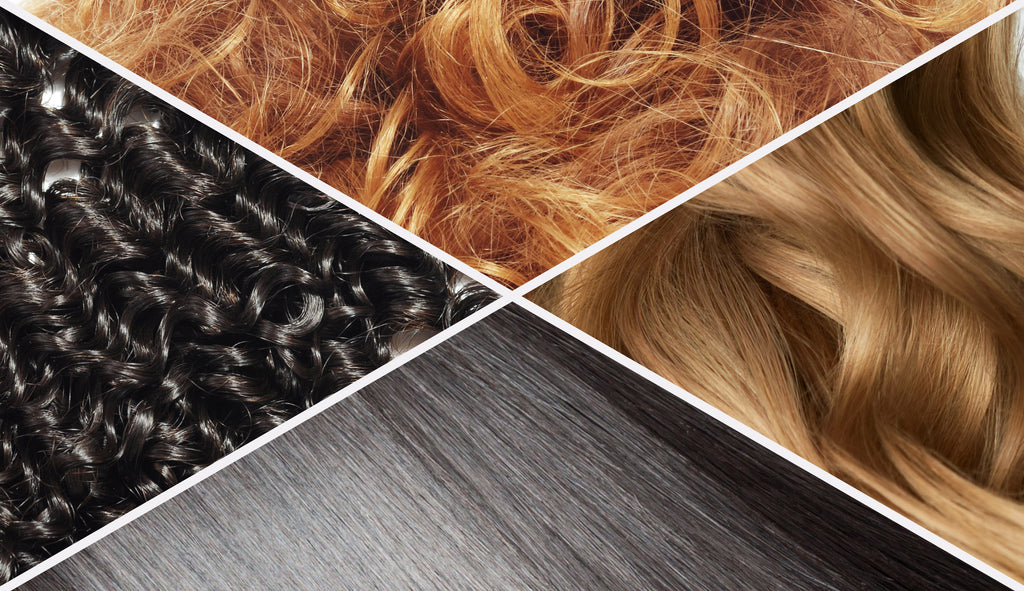
Our hair is basically our BFF. It’s been there for us since the beginning, been through its ups and downs, and even gotten in a few fights with us (looking at you, bad hair days). But how well do you know your hair? It’s critical to recognize your hair’s basic traits, its likes, and its dislikes. To make sure your hair is looking its best and staying well-behaved, you should acquaint yourself with it a little better. Read below to check out the most common hair types, their characteristics, and how you should care for them. Your locks will be forever thankful!
Still considered one of the definitive professional models for identifying a person’s hair type, hair stylist Andre Walker’s 1997 hair typing system is our favorite way to break down the complexity of the hair spectrum. Walker styled Oprah’s hair for nearly 30 years - so he’s pretty much hair royalty. With his system, he takes into account the overall texture and shape of the hair strand, and its most recognizable traits. Check below for a condensed overview of this system!
 Type 1: STRAIGHT HAIR
Type 1: STRAIGHT HAIR
Straight hair is considered the most resilient of the hair types, and often reflects the most shine. For some straight hair, volume and body is also enhanced. A downside to this hair type can be that it’s super resistant to curling, making it difficult to style; a heartbreaking roadblock when all you want are those full, beachy waves! Since the strands hang straight down from the root, this hair type also tends to get oily faster. This category includes fine and thin, medium, and coarse variations of straight hair.
Which natural hair products will work for this hair type?
Using a kelp-based volumizing shampoo once to twice a week can be enough to give hair the fullness it’s lacking, without weighing it down. But as a rule, straight and fine hair should avoid heavy, volumizing products every day. Since straight hair types tend to be a bit oilier, you can also use a citrus-infused formula to gently break apart oil buildup that might be making you feel greasy rather than gorgeous. Finally, if you’re looking for a thicker, fuller head of hair opt for a growth enhancing, clarifying natural hair product that supports a healthier scalp and hair growth with every use.
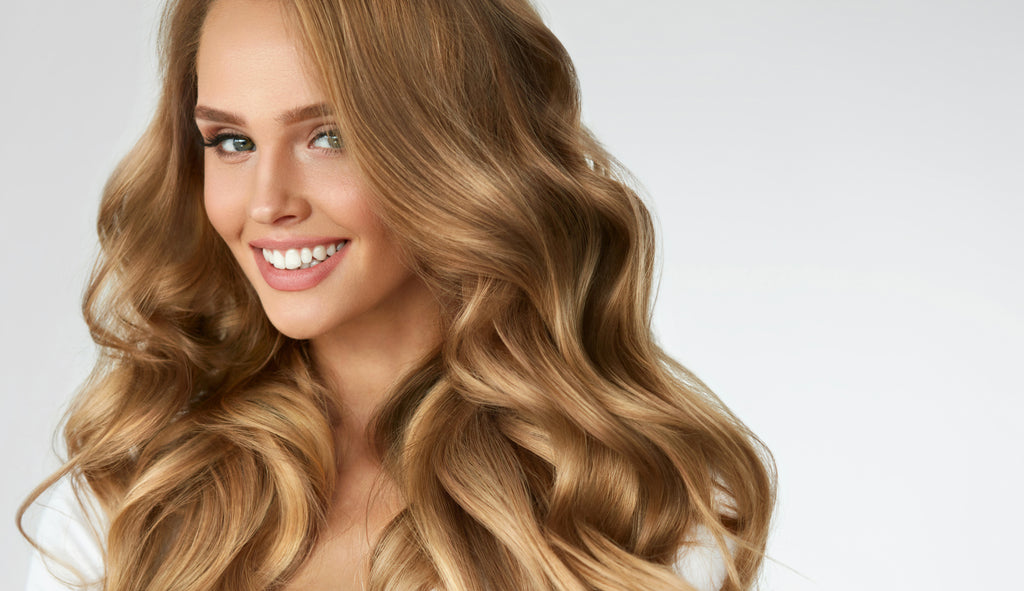 Type 2: WAVY HAIR
Type 2: WAVY HAIR
Wavy hair is defined by its “S” shaped strands - essentially a very elongated version of a curl. This category includes fine and thin, medium, and coarse variations of wavy hair. Fine and thin wavy hair has the longest “S” shape, and is generally easy to style. Medium wavy hair can be more finicky, with a tendency to frizz at the crown of the head. Coarse, wavy hair will boast a tighter “S” wave that isn’t quite a curl, but comes pretty close.
Which natural hair products will work for this hair type?
For long and wavy hair that has lost its luster, a glossing shampoo will help restore vibrancy and shine. Since the “S” shape of wavy hair catches and reflects larger portions of light, it’s important to support its ability to shine! Heavy or coarse waves may also benefit from a good dandruff shampoo, since their weight and texture may lead to oil buildup at the scalp.
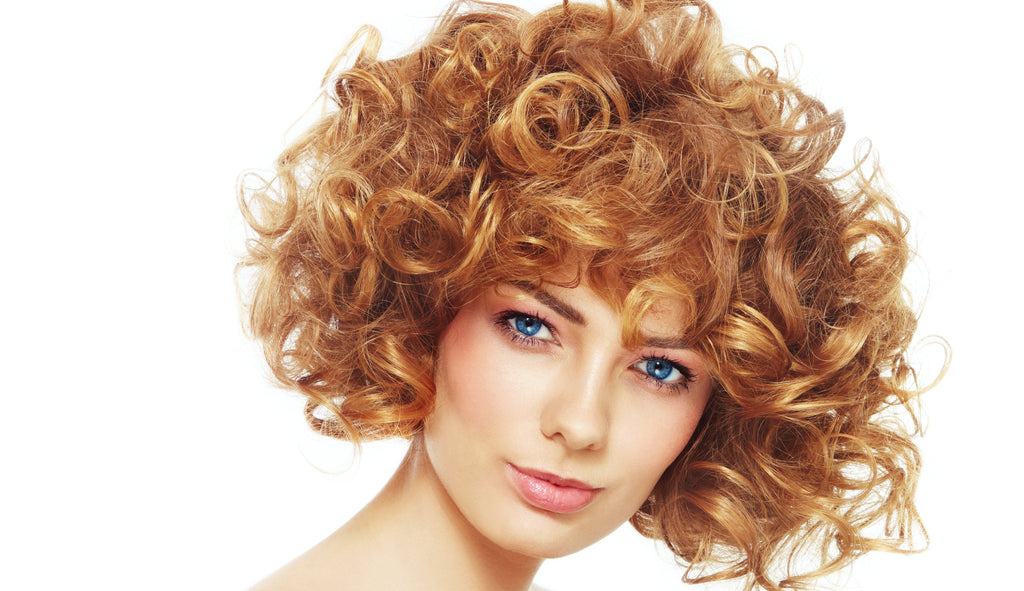 Type 3: CURLY HAIR
Type 3: CURLY HAIR
Curly hair includes two variations: loose and tight. These strands can range from loose, semi-wavy curls to tight and bouncy corkscrew curls. The former boasts more loopy “S” strands, and tends to get frizzy more easily. The corkscrew variety is tightly wound, and tends to be thicker or coarser and more voluminous. Curly hair types are pretty sensitive to changes in climate, meaning conditions like humidity will make them frizz up and more difficult to style. Curly hair is also more prone to damage.
Which natural hair products will work for this hair type?
Curly hair types love anything that will enhance brightness, softness, and bounce. Frizz controlling formulas are saviors for curly locks, since frizz can cause curls to look ‘poofy’, detracting from the beautiful curves of this hair shape. Curls should also seek out shampoos that increase vibrancy with natural, non-stripping citrus fruits, and smoothing shampoos and conditioners that restore healthy bounce and life to curls.
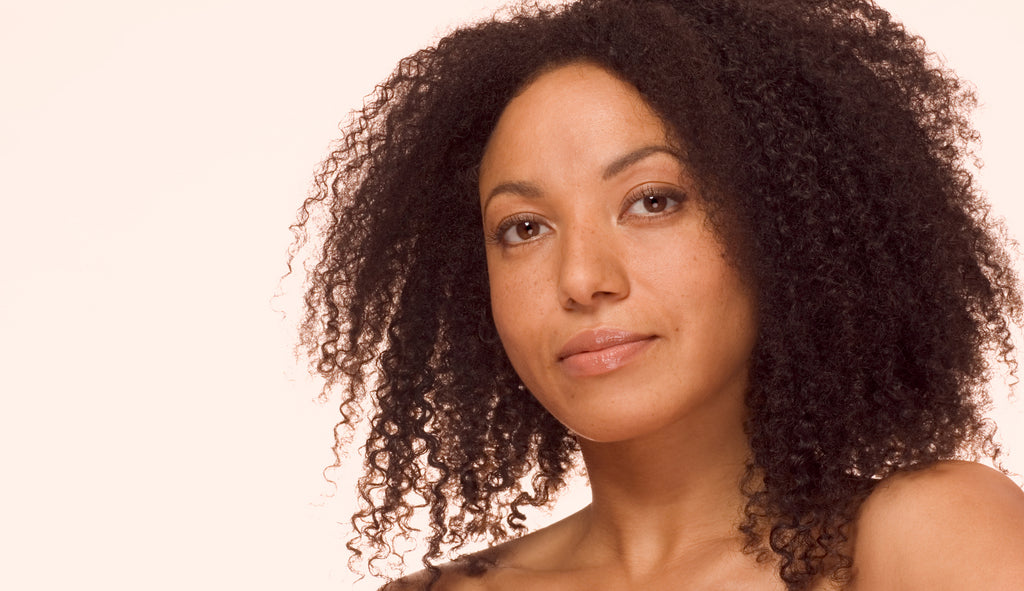 Type 4: KINKY HAIR
Type 4: KINKY HAIR
The kinky hair type is a level-up from curly, flaunting tightly wound coils and “Z” patterns in the strand. Varieties of this hair type include soft, and two types of wiry. Soft kinky hair is more susceptible to breakage, with tight coils. There are two types of wiry, kinky hair: one with a bit of curl pattern, and another without - this type follows a stronger “Z” wave rather than a circular coil. Kinky hair shrinks up when wet, then expands when dry. Much like curly hair, kinky locks need plenty of nourishment to battle breakage.
Which natural hair products will work for this hair type?
Since kinky hair types are more susceptible to damage and breakage, it’s crucial to replenish them with the right products. Opt for nourishing ingredients in your hair care, like rich coconut oil and humectants like honey to keep your strands moisturized and flexible. To guard against breakage, fortify strands with strengthening horsetail and seaweed collagen. Finally, add in a repairing shampoo or conditioner to replenish lost hydration, moisture, and vitamins to compromised strands. A repairing natural hair product will be key for hair types exposed to repeated styling, dyes, or chemical treatments.
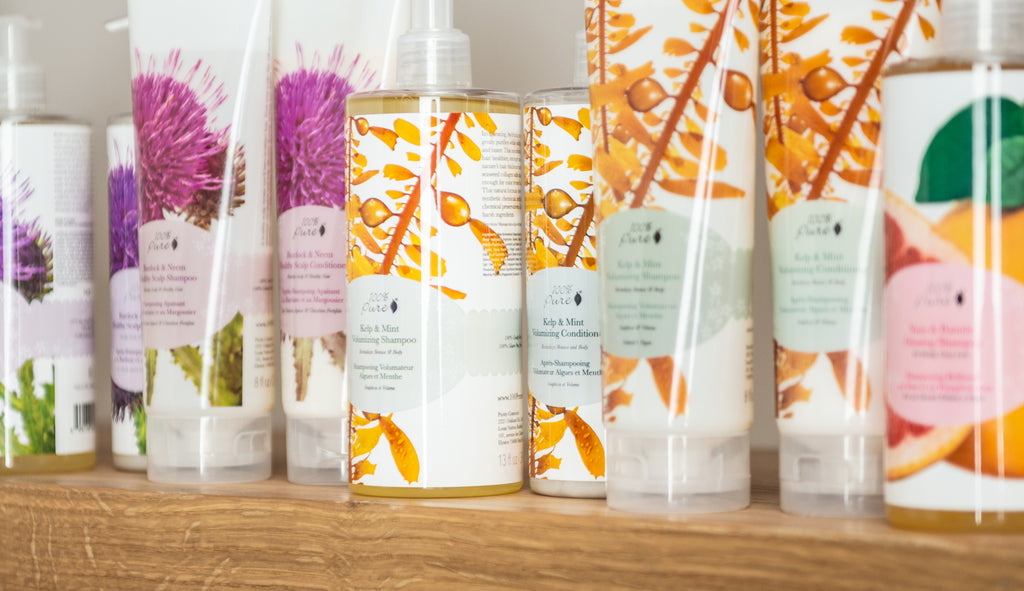 What You WON’T Find in Natural Hair Products
What You WON’T Find in Natural Hair Products
When you’re researching the right products for your hair, we recommend avoiding a few pesky ingredients. Specifically: sulfates, parabens, FD&C dyes, mineral oil, and certain alcohols. Sulfates are powerful detergents that clean your hair a little too well - so well they can strip your hair and scalp of necessary oils responsible for moisture and flexibility.
Parabens are preservatives in hair care that can cause or exacerbate long-term health issues. FD&C dyes might make your shampoo look flashy and festive, but they’re full of petrochemicals that can cause irritation and sensitivity. Another suggested ‘avoid’ ingredient for your hair is mineral oil, which can cause heavy buildup on your strands and scalp, increasing risk for clogged follicles and hair loss.
Last on our list are certain moisture-stripping alcohols, specifically isopropyl, ethanol, and denat. These ingredients are meant to ‘soften’ the hair, but we find it’s only a temporary benefit. These alcohols, along with those listed above, are more likely to be too harsh for hair - especially when used almost daily.
Instead of drying to discern what each chemical on your shampoo bottle means, treat your hair with a little more TLC. Look for natural, recognizable ingredients like flax, coconut oil, and vitamin E - your hair will drink up these gentle and effective nutrients, while sustaining their benefits for the long run.
- Tags: Body, December-2018, Shopping Guides
We carefully hand-select products based on strict purity standards, and only recommend products we feel meet this criteria. 100% PURE™ may earn a small commission for products purchased through affiliate links.
The information in this article is for educational use, and not intended to substitute professional medical advice, diagnosis, or treatment and should not be used as such.



